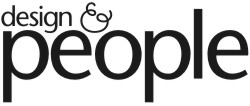Re-designing The East:
Political Design in Asia and Europe
Württembergischer Kunstverein Stuttgart

Pracha Suveeranont | Vote No to Draft Constitution Campaign, 2007 | Courtesy: Pracha Suveeranont
From 25 September 2010 to 9 January 2011 is dedicated to the Württemberg Art Society with the exhibition Re-Designing the East. Political Design in Asia and Europe, critical and resistant design practices of the 1980s until today (Eastern) Europe and (South / East) Asia. It is about the role of design and designers in the context of wide-ranging social, political, economic and cultural upheavals.
Re-Designing the East based on cooperation between the Württemberg Art Association, the Trafó Gallery in Budapest and the Wyspa Institute of Art in Gdansk. The exhibition comprises six sections, which are developed by each different curators from Europe and Asia.
Since the early 1990s has become - particularly moved by the collapse of the Soviet Union and the so-called Eastern Bloc countries and in the context of a global neo-liberalism 'and the rapid development of information and communication technologies - the hitherto unknown world order radically and permanently. The old ideological concepts of "East" and "West" have become obsolete. In - from Eurocentric perspective - will be far distant East, in addition to China, even countries like South Korea, Thailand and India long economic positions occupied by global relevance. The former order of the center (the "West") and periphery (the "residual") was broken.At the same time, the much vaunted "triumph" of Western models of democracy and free market economy, prosperity, peace and freedom would bring for all, proved to be a fallacy.
The exhibition Re-Designing the East. Political Design in Asia and Europe in the title refers to the slipping away or at least the questionable nature of geo-political assignments as "the East". Same time, the upheavals of the 1980s and 1990s in Europe and are set to date in Asia in relation to one another, and in light of the question of what role critical and resistant design practices within this breaks play, that is, within the struggles for political, social , economic, environmental and cultural reorganization.
The focus is on contexts such as the political changes of the 1980s and 1990s in Hungary, Poland and the former Czechoslovakia, and to this day, accompanied by multi-layered conflict democratization and rapid economic developments in India, Thailand and South Korea.
The exhibition focuses on this very different design positions. The historical items include, inter alia, the Polish by Jerzy Janiszewski designers developed the logo of the Solidarity movement. Will also investigate the work of Czech designer Joska Skalník, who was active in the so-called "Velvet Revolution" involved, but now faces the accusation of having acted as an informer of the secret of Czechoslovakia.
The current position is one of the Indian Network Design & People, which is committed to socio-political projects. In the spirit of "copyleft" it makes it his creative work and his knowledge for non-commercial purposes for free. The Thai designers Pracha Suveeranont shows a 2007 he developed extensive boycott campaign, which was directed against the election of a new Constitution of Thailand, and other graphic works that relate to current social and political conflicts in the country. The South Korean group of Activism Graphic Imagination (AGI) is involved in activist contexts. Her work in South Korea oppose the ruling repressive policy that an unbridled turbo-capitalism is new awakening and a "cold war" atmosphere due.
The participating curators of the exhibition had in the design of their section and the selection of the designers a free hand. This was followed by the Württembergische Kunstverein one already under On Difference (2005 and 2006) or subversive practices (2009) tested model that explores just in dealing with so-called "non-Western" cultural practices, the possibilities and limitations of a multi-perspective and process-based curating. While Subversive practices highlighted the resistive potential of the visual arts, Re-Designing the East stands now explicitly the characteristics of resistant methods and aesthetics out of the design.
Re-Designing the East is the prelude of a series of projects of the Württemberg Art Society, who wish to move decisively in the coming years on the terrain of neighboring disciplines of visual art. The aim is to examine the ever own and common approaches, discourses and functions in terms of aesthetic and sociopolitical issues.
The opening weekend of the exhibition Re-Designing the East will be accompanied by a conference. A publication of the project appear following the exhibition.
An exhibition of the Württemberg Kunstverein Stuttgart
in cooperation with Trafó Gallery, Budapest; Wyspa Institute of Art, Gdansk and Total Museum, Seoul
within the project in charge. The Role of Political Transformation in Designers
Curators Maks Bochenek (PL)
Hans D. Christ, Iris Dressler (D)
Sethu Das (India)
Nikolett Erőss (HU)
Pospiszyl Tomas (CZ)
Keiko Sei (Japan / Thailand)
Nathalie Boseul Shin (South Korea)
Funded by Ministry of Science, Research and Arts of Baden-Württemberg
Cultural Office of the City of Stuttgart
Institute for Auslandesbeziehungen, Stuttgart
First Foundation, Vienna
RE-DESIGNING THE EAST. Political Design in Asia and Europe is part of the project in charge. The Role of Political Designers in transformation, which is carried out by the Württemberg Art Association in cooperation with the Trafó Gallery in Budapest and the Wyspa Institute of Art in Gdansk and funded by the European Community.
Press tour Friday 24 September 2010, 11:00 clock
Opening Friday 24 September 2010, 19:00 clock
Tour with the curators and the 25th Conference + 26th September 2010
Free guided tours every Sunday, 15 clock
Address Württembergischer Kunstverein Stuttgart
Schlossplatz 2, 70173 Stuttgart
Tel: +49 (0) 711-22 33 70 Fax: +49 (0) 711-29 36 17
info@wkv-stuttgart.de / www.wkv-stuttgart.de
Opening times Mon, Thu-Sun: 11-18 Clock, Wed: 11-20 Clock
Share
No comments:
Post a Comment